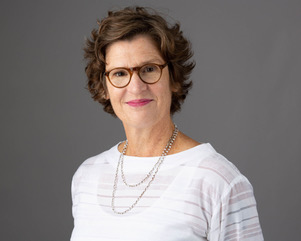Authored by Jennifer Howe, L.C.S.W.
People often comment, almost in awe and incredulity, that my ex-husband and I are not only cordial and supportive co-parents, but actively share family and social gatherings together. When I mention that my ex, his wife and son came for dinner last night, I can almost predict the expression of horror, quickly disguised as awe that will come over her face. People like to believe it requires some super human power to allow our frontal cortex, rather than our archaic limbic system, to make decisions that serve the best interests of our families. The decision to nourish and foster a relationship that is the bedrock of my child’s life was a “no brainer”, albeit accompanied by some very strong physical/emotional responses.
Research suggests that the most well-adjusted children of divorce are those in which parents avoid “conflictual” relationships with each other and adapt well themselves to divorce. Unfortunately conflictual in this context is frequently only applied to overt displays of anger or disagreement. The undercurrent of rage and hurt that drives much of divorce behavior and parenting goes unexamined. Despite an outward appearance of calm in the divorced relationship, fissures can often be seen in the ways members of the family begin to show symptoms; depression, isolation, anxiety, acting out, difficulties with intimacy, etc. If you take a longitudinal look at these families, the responses to the cut-off are usually explicit over the course of a life.
The most typical response in divorce is this “emotional cut-off”; an instinctual response we use to escape pain; a range of responses from flagrant disregard and hostility, to a makeshift show of compliance and agreeableness; a show of communication and contact, where no real effort has been made to understand and acknowledge one’s part in the conditions of the relationship and its current incarnation. Blame and anger continue to simmer under the spectacle of child-focused communication. This is understandable. Divorce is devastating, especially with children in tow. The desires and hopes to escape and begin anew are immediately dashed, if one is paying attention. Once the realization that the children still hold one unavoidably close to the emotional process that one hoped to escape, despair and frustration can set in.
In our case, we had four years where the anger and blame fueled many of our interactions. Despite our best efforts, our anger was always just slightly under the surface. At some point, after much thought and research, I realized that it was my responsibility to create the type of relationship I wanted with my ex-husband. I had contributed to creating the distrust and anger he felt towards me and I wanted to change my part in that dynamic. I knew I couldn’t change him but I saw there was plenty I could do to change myself.
The first years were tense and awkward. My ex begrudgingly agreed to my invitations, for shared dinners and events involving our daughter, but he lost no opportunity to communicate his hostility. I’d frequently leave these gatherings to cry at home alone. It hurt to feel so reviled and rejected, but I knew I had played my part in creating that dynamic and I was committed to remaining trustworthy, kind, and respectful. I knew this was my job, no matter how he responded to me and I hoped one day he would see that I was sincere in my efforts.
Our daughter is 21 years old, and it has taken about that long to get to a place where I believe my ex, his wife and I genuinely trust and love one another. It hasn’t been the easiest choice, and it certainly did not provide quick results but I can rest in the knowledge that my daughter can focus her energies on navigating her own life course, rather than being blindly caught up in the unacknowledged anger of her parents. It’s the toughest job being a parent, even tougher when you are still fighting your ex. When people “ooh and aah” over our ability to be calm, compassionate adults in the parenting of our child, I think it is simply their way of saying, “I’m not willing to do the hard work of being a grown-up”. If we believe that using our intellect to overcome uncomfortable emotions is a super human power, maybe it’s time we all don a cape?




Leave a Reply